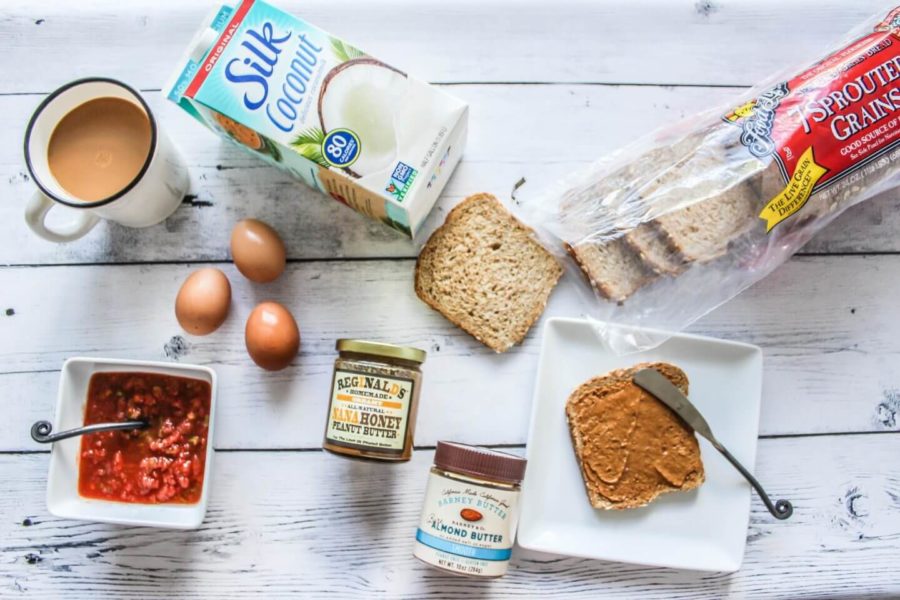While in college, the idea of eating healthy meals may daunt you, but you can actually save money by avoiding processed and refined foods. Save your life and save money by switching to a nutritionally balanced diet. Here are five ways students can eat well on a college budget.
1. Use coupons
“Never be embarrassed to use coupons!” FGCU sophomore Angela Monroe says. “I have several friends that find it embarrassing to use coupons and feel like they are inconveniencing all of the other shoppers.”
Monroe says it’s inconvenient for you not to use them. Publix, Sweetbay, Super Target, and Walmart accept competitors’ coupons, manufacturer coupons, and Internet coupons.
FGCU student Tina Dao strategically plans her shopping trip days in advance.
“I look at the weekly flyers online and go through my coupons before shopping, always.”
She explains that Publix posts its weekly ads online every Thursday. Dao looks for BOGOs (buy-one-get-one) deals that are offered for each week. She then goes through her coupons and matches them with the BOGOs. Doubling deals and dividing the BOGOs between your roommates can triple your savings.
“Basically, my techniques for saving money are taking advantage of deals, clearances, sales, and coupons,” Dao says.
2. Eat whole foods
Whole food is food in its natural state, and it’s more satisfying to your body.
“When you buy whole foods, you get more food per ounce because it’s higher in nutrition,” says Michele Badanek, an FGCU pre-med student and whole foodist. “You get nutrient-dense food for the money.”
Badanek explains a $1 Taco Bell taco may temporarily fill your stomach but it won’t leave your body satisfied. Shortly after you eat, your stomach will begin begging for more. This starts a chain reaction of buying unsatisfying food. In fact, Badanek says, if we ate the proper nutrients to begin with, we wouldn’t spend money on fast food in an effort to become “full.”
“Nature does have fast foods available,” Badanek says. “Its not like you have to cook everything.”
Badanek advises to always have boiled eggs in your refrigerator. It’s simple, fast, and a good source of protein. Have a sweet tooth? Slice apples and pair it with almond butter.
3. Buy local and fresh
Farmer’s markets are popping up all over Southwest Florida, offering cheap, local and organic produce. The fruits and veggies aren’t heavily sprayed with chemical pesticides and the prices are light on your wallet. For $4 you can purchase a basket of green beans, a head of broccoli, and four tomatoes. The closest farmer’s market is less than three miles from FGCU, behind Miromar Outlets, and offers fresh produce from Farmer Mike’s U-Pick farm every Sunday from 10 a.m. to 2 p.m.
4. Drink water
Quit drinking caffeinated drinks that add unnecessary calories to your diet and empty your wallet. Start drinking water. Someone who drinks a bottle of soda every day spends about $450.00 a year. Money isn’t the only drawback.
“The style of studying all night and drinking coffee all day might last for a couple years, but when you graduate, you have shot your adrenals,” Badanek says. “You’re so fatigued; will you even be able to perform at work?”
Adrenals supply your body with adrenalin and help you cope with stress.
“It would be like running your car without any oil,” Badanek says. “Eventually, your car will quit running.”
Drink water and save money.
5. In need? Get it free.
Students who can’t afford basic meals and nutrition should visit FGCU’s Campus Food Pantry. Since opening in August 2012, the Campus Food Pantry has allowed students to pick up 15 pounds of free groceries per week. Products very each week depending on what is donated but it ranges from loaves of bread to frozen meat. The only thing needed is a student I.D. and a signed agreement stating you’re in need of food for financial reasons. The pantry is in room 102 of the Music Modular, across from South Village Housing and is open Mondays 4 p.m. to 7 p.m. and Tuesdays 11 a.m. to 2 p.m.









































